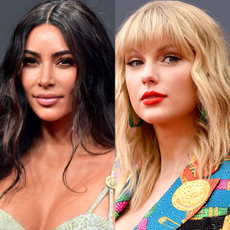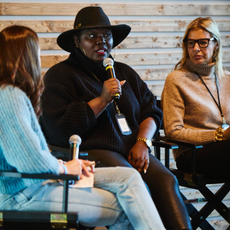

Even in a high-paying field like medicine, the gender pay gap still depressingly persists. A study published in the Journal of Hospital Medicine found that women doctors get paid less for the same work—but the reason why is pretty surprising.
The study focused on doctors who worked in hospitals, not in private practices. Hospital medicine is considered a relatively new field; most workers are under 41 and women make up one third of the workforce. Women make, on average, $14,581 less than their male peers in this field, and that's controlled for factors like age, specialty, and geography.
To figure out why, researchers used data from a survey of 776 hospital physicians, both male and female. The respondents answered questions about their income, characteristics of their jobs, and what makes them satisfied at work. On average, female doctors tended to be younger, worked fewer hours and more nights, were more likely to be pediatricians, and were less likely to be leaders at work. They also tended to report fewer "billable encounters" per shift, meaning they brought in less money, but may have focused their time on things like teaching instead.
But researchers say the biggest factor when it came to the pay gap was priorities on the job. Though both men and women said work-life balance was their top priority in terms of job satisfaction, men listed high pay as their second priority, while women ranked it fourth. The researchers say this might be because women are more likely to be in two-income households, or because they might negotiate less because they're more likely to be viewed negatively for asking for more money.
Even though women might not put money at the top of their list, it doesn't excuse the fact that they're getting paid less for equal work. "Women's tendency to prioritize substantial pay less than men may account for some of the gender pay inequities that exist in our society," lead author Dr. A. Charlotta Weaver said in a statement. "However, substantial pay is different from equal pay. I bet most women still want fair pay."
Stay In The Know
Marie Claire email subscribers get intel on fashion and beauty trends, hot-off-the-press celebrity news, and more. Sign up here.

Megan Friedman is the former managing editor of the Newsroom at Hearst. She's worked at NBC and Time, and is a graduate of Northwestern's Medill School of Journalism.
-
 Kim Kardashian Loses 100,000 Followers on Social Media—Is Taylor Swift to Blame?
Kim Kardashian Loses 100,000 Followers on Social Media—Is Taylor Swift to Blame?"Finally someone stood up to Aimee."
By Meghan De Maria Published
-
 Rihanna Reveals Which of Her Past Outfits She Considers Her “Fashion Icks”
Rihanna Reveals Which of Her Past Outfits She Considers Her “Fashion Icks”“I’m just like, ‘Oh my God, I really did that?’”
By Rachel Burchfield Published
-
 Halle Bailey Opens Up About Having "Severe" Postpartum Depression
Halle Bailey Opens Up About Having "Severe" Postpartum Depression"It's to the point where it's really bad."
By Meghan De Maria Published
-
 Confronting Unequal Pay: A 10-Step Guide for Women—and Their Allies—to Fight Wage Discrimination
Confronting Unequal Pay: A 10-Step Guide for Women—and Their Allies—to Fight Wage DiscriminationBlack Women’s Equal Pay Day is not a celebration. My hope is that if we all continue to ask for what we want, we chip away at that wage gap, one Black woman—and ally—at a time.
By Minda Harts Published
-
 Peloton’s Selena Samuela on Turning Tragedy Into Strength
Peloton’s Selena Samuela on Turning Tragedy Into StrengthBefore becoming a powerhouse cycling instructor, Selena Samuela was an immigrant trying to adjust to new environments and new versions of herself.
By Emily Tisch Sussman Published
-
 This Mutual Fund Firm Is Helping to Create a More Sustainable Future
This Mutual Fund Firm Is Helping to Create a More Sustainable FutureAmy Domini and her firm, Domini Impact Investments LLC, are inspiring a greater and greener world—one investor at a time.
By Sponsored Published
-
 Power Players Build on Success
Power Players Build on Success"The New Normal" left some brands stronger than ever. We asked then what lies ahead.
By Maria Ricapito Published
-
 Don't Stress! You Can Get in Good Shape Money-wise
Don't Stress! You Can Get in Good Shape Money-wiseYes, maybe you eat paleo and have mastered crow pose, but do you practice financial wellness?
By Sallie Krawcheck Published
-
 The Book Club Revolution
The Book Club RevolutionLots of women are voracious readers. Other women are capitalizing on that.
By Lily Herman Published
-
 The Future of Women and Work
The Future of Women and WorkThe pandemic has completely upended how we do our jobs. This is Marie Claire's guide to navigating your career in a COVID-19 world.
By Megan DiTrolio Published
-
 Black-Owned Coworking Spaces Are Providing a Safe Haven for POC
Black-Owned Coworking Spaces Are Providing a Safe Haven for POCFor people of color, many of whom prefer to WFH, inclusive coworking spaces don't just offer a place to work—they cultivate community.
By Megan DiTrolio Published